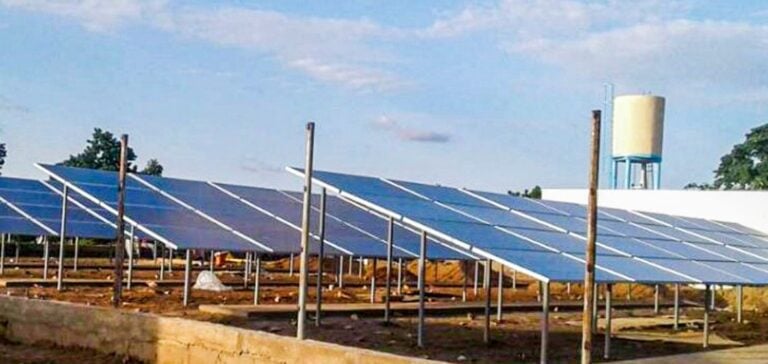The ElectriFI initiative, managed by EDFI Management Company, represents a significant advancement for rural electrification in Togo. With substantial financing, Moon Togo plans to expand its network to 15 additional prefectures, directly impacting 60,000 households with access to off-grid solar energy.
Currently, only 25% of rural inhabitants in Togo have access to electricity, compared to a national average of 57.2%, according to the World Bank. This strategic investment aims to bridge this gap by deploying adaptable and sustainable solar solutions.
An inclusive economic model
Moon Togo, operating under the government’s CIZO program, offers accessible energy systems through flexible payment methods and community integration. By promoting local job creation and recycling end-of-life solar equipment, the company combines economic efficiency with environmental sustainability.
Addressing regional energy challenges
In sub-Saharan Africa, nearly 570 million people still lack reliable access to electricity. Off-grid solar energy is emerging as a key solution to this challenge. With this investment, ElectriFI supports an initiative capable of positively influencing the region’s energy future.
Rodrigo Madrazo Garcia de Lomana, CEO of EDFI Management Company, praised this model: “We believe this approach has the potential to transform lives and become a global benchmark.”
A strategic public-private partnership
Launched in 2017 by the Togolese government, the CIZO program remains a flagship initiative in rural electrification. It aims to provide solar home systems to 2 million citizens by 2025. Moon Togo’s commitment, supported by ElectriFI, aligns the private sector with governmental objectives, creating a sustainable impact on the ground.
Improving access to electricity is also seen as a driver of economic growth for rural communities, opening opportunities in sectors such as education, healthcare, and entrepreneurship.






















